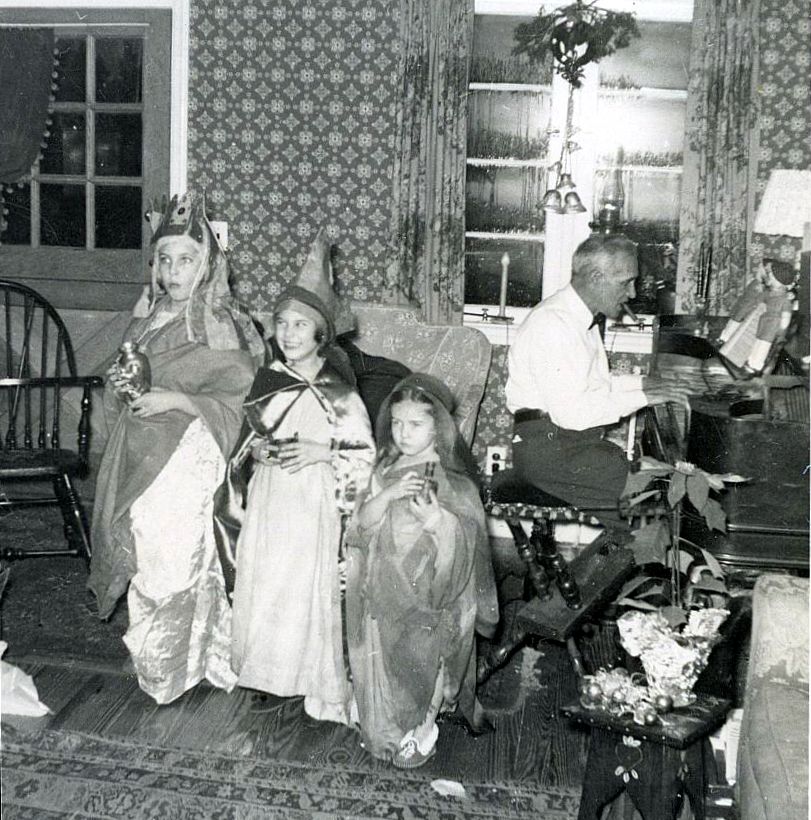At no time was our fervor for such revelry greater than at Christmastime.
Because their three-ness matched our three-ness, my two sisters and I felt a particular affinity for the Three Wise Men. When Amahl and the Night Visitors debuted on Christmas Eve of 1951, we quickly adapted our own hilarious (to us) and rather raucous version, prancing around the house and belting out "Mother, Mother, Mother come with me!" at the top of our lungs.
Not even Gian Carlo Menotti's charming opera, however, could compete with our perennial favorite, the splendidly dramatic old carol "We Three Kings." Each of us had her own favorite king and her own favorite verse to sing. Mine was Balthazar; for some reason I found his lugubrious description of his gift perfectly irresistible: "Myrrh is mine; its bitter perfume / Breathes a life of gathering gloom / Sorrowing, sighing, bleeding, dying / Sealed in a stone-cold tomb."
I hadn't the faintest idea what myrrh was, of course, but then I didn't know what frankincense was, either. No matter, we all knew they had to be something pretty special since they obviously had to equal the value of the third gift, gold.
Once we had perfected our costumes, committed our verses to memory once again, and duly rehearsed, we herded our captive elders into the living room, and my grandfather, after considerable coaxing, sat down at his Steinway. In his youth he had had a successful career as a concert pianist, but by this time his skills had sadly atrophied from disuse and arthritis. I now have an inkling of how painful this must have been for him, but at the time I was completely oblivious. I only hope he knew how grateful we were for his critical contribution to our production.
And this, this is the magic moment captured in the photo - the performance just about to begin, Sherry and I trying our best to look serious as befitted the solemn occasion, the irrepressible Leslie grinning from ear to ear, our long-suffering grandfather seated at the keyboard, chomping on his ever-present cigar. My father was undoubtedly the photographer. Truly a Stodola classic.


 RSS Feed
RSS Feed